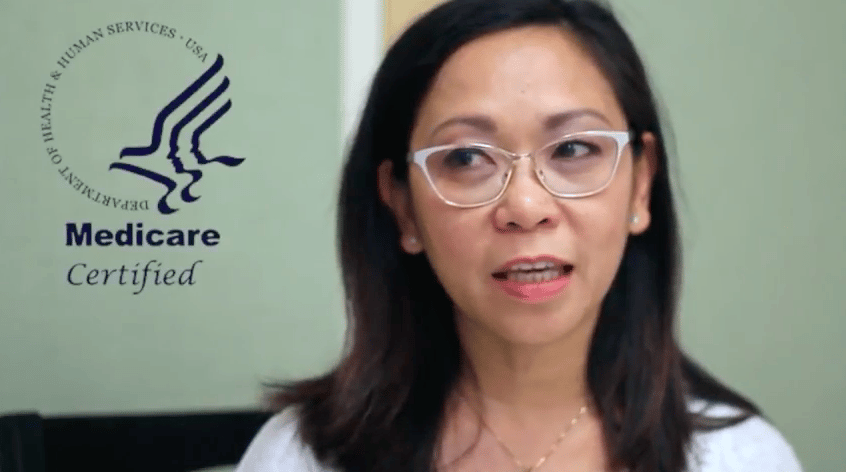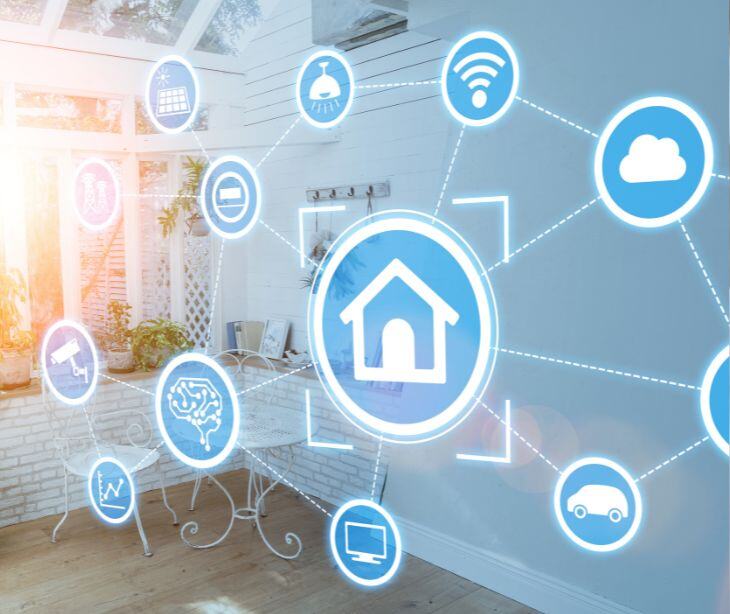
The demand for both Senior Care Homes and Senior Care Home Providers is increasing each year at an accelerated pace. U.S. Healthcare Trends at a glance:
- 10,000 baby boomers retire every day in the U.S.
- By 2030, it's expected 72 million Americans will be at least 65 years old.
- The U.S. Department Labor lists 19 million Americans working in Healthcare in 2016. That number is forecast to grow to 23 million by 2026.
- U.S. Healthcare is expected to add over 4 million jobs between 2012 and 2022. That’s more than any other industry.
According to the U.S. Department of Health and Human Services (HHS), there were 40 million Americans aged 65 years or older in 2009. Representing one in every eight Americans, the elderly demographic is expected to swell to 72 million Americans by 2030. In other words, 19% of the U.S. population will be elderly by 2030.
The explosion in American senior citizens is due of course to the Baby Boomer Generation- those born in the 1940s and 50s. The rapidly expanding elderly population dictates a need for more Senior Care Homes and Providers.
Types of Senior Care Homes
Senior Care Homes come in a variety of offerings and can be difficult to differentiate. But regardless of the type of Senior Care Home, they all share some of the unique challenges in securing communications. Unlike some health care providers, Senior Care Homes don't just exchange PHI internally between staff, but they have to communicate with primary care physicians, insurance providers, and even patient families. HIPAA Compliant Email can help improve operational efficiency for Senior Care Homes by making Scroll down to see the different types of Senior Care Home, or just click a link below to see a specific type.
- Assisted Living Facilities (ALF)
- Intermediate Care Facility (ICF)
- Skilled Nursing Facilities (SNF)
- Home Health Care
- Residential Care Homes
- Respite Care
- Memory Care
- Services Offered at Senior Care Homes
Solving the problem of secure communications for Senior Care Homes
Many Senior Care Homes face problems with HIPAA Compliance and employee productivity. Since they often deal with patient names, diagnoses and summaries, they are required by law to encrypt their data when sending information to team members and people outside of their organization. Senior Care Home Providers typically send Protected Health Information (PHI) via fax or use code names via unencrypted email. Both practices however, are prone to error and HIPAA violations. A fax can be sent to the wrong number or an employee can forget to use a code name. These methods are also terribly inefficient when used outside the office and communicating to a patient's family or primary care physician. This can get even more cumbersome for remote staff that often travel outside of a facility to provide care. Portals and proprietary platforms are often difficult to access on a mobile device with intermittent internet connectivity. Using HIPAA compliant email can help address these issues.
Considerations of HIPAA compliant email for Senior Care Homes
The HIPAA Privacy Rule created, for the first time, a set of national standards for the safeguard of certain health information. It allows Covered Entities to disclose PHI to a Business Associate if they receive assurances that the Business Associate will use the information only in the scope of which it was engaged by the Covered Entity. The HIPAA Security Rule was added to set out what safeguards must be in place to protect electronic PHI (ePHI), which is health information that is held or transferred in electronic form. In regards to email, this means that covered entities are required to take reasonable steps to protect PHI from their computer and as it’s transmitted electronically, all the way to the recipient’s inbox. If you are using a third party to transmit or host PHI, they are required by law to sign a Business Associate Agreement (BAA) with you. The BAA establishes that certain administrative, physical and technical safeguards are in place. While there’s no certification that makes an email provider achieve HIPAA compliant email status, meeting the requirements set by the HIPAA Privacy & Security Rules is the best place to start. Strong technical security measures also need to be considered to make sure PHI is protected inbox to inbox. That means off-the-shelf configurations of most business email platforms won't cut it.
In-Home Care provider implements HIPAA compliant email
Hookele Health Navigators is an In-Home Care Provider in Honolulu. By choosing Paubox as their HIPAA Compliant Email provider, they were able to encrypt all of their outbound email without changing any settings on their computers, smartphones, or tablets. In addition, Hookele gained robust inbound email encryption and protection against ransomware attacks. This let Hookele Health reap the benefits of secure HIPAA compliant email without changing the way they interact with email.

“We’re better now because we’re protecting our clients’ information," said Bonnie Castonguay, Co-Founder of Hookele Health Navigators. "Thank you for the great service.”
Using HIPAA compliant email for Senior Care Home providers

Holistic Care at Home, a Medicare-certified Home Health Agency in Oakland, also gained security and operational efficiency with Paubox. They help patients transition from facilities like hospitals or nursing homes to their own home. Once orders are received from a doctor, Holistic Care at Home provides services to help patients manage and recover from their illness. Holistic Care at Home used Paubox to make that communication secure and easier to manage for staff. "[Paubox] helped us a lot with HIPAA communications," said Zenaida Penetrante, CEO of Holistic Care at Home. "Because you provided the service for HIPAA regulated email... We use it for all our clinicians."
https://www.youtube.com/watch?v=3IbA9xRcEYI
Assisted Living Facilities (ALF)
Assisted Living Facilities cater to seniors who are relatively independent and have few medical problems. Residents in Assisted Living Facilities typically live in fully equipped private apartments with supervision or assistance with activities of daily living. In addition, there are numerous social outings and events to choose from for entertainment. Assisted Living can be thought of as a philosophy of care and services promoting independence and dignity. Assisted Living Facilities are also known as:
- Assisted Living Communities
- Congregate Care
- Continuing Care Retirement Communities
- Retirement Communities
- Retirement Villages
- Senior Apartments
- 55 + Communities
Intermediate Care Facility (ICF)
An Intermediate Care Facility is a senior care home facility for individuals who are disabled, elderly, or non-acutely ill. An Intermediate Care Facility usually provides less intensive care than that offered at a hospital or Skilled Nursing Facility. Services are usually paid for by the senior or by the senior's family. An senior's private health insurance and/or a third party service like a hospice company may sometimes also cover the cost.
Skilled Nursing Facilities (SNF)
A Skilled Nursing Facility caters to seniors who require 24-hour monitoring and medical assistance. Patients typically suffer from severe illnesses including cardiac and respiratory diseases or are recovering from a serious injury. A hip fracture for example, would render a patient unable to care for themselves and thus a good fit for Skilled Care. Today's Skilled Nursing Facilities provide skilled medical attention such as physical therapists and licensed physicians. Gourmet dining services are also available at such Skilled Care Homes. Skilled Nursing Facilities are also known as:
- Convalescent Homes
- Nursing Home Care
- Skilled Care
- Skilled Nursing Care
Home Health Care
Home Health Care helps patients and older adults live safely at home with medical conditions like acute chronic illnesses, terminal illnesses, post-surgical events, and short-term health needs. Home Health Care typically includes part-time or intermittent Skilled Nursing Care and other skilled care services like physical therapy, occupational therapy, and speech-language pathology. Home Care services may also include medical social services or assistance from a Home Health Aide. To receive these services, a doctor must first order a person's home health care. A Home Health Care Provider then coordinates these services for the patient. Certified Home Health Aides provide a range of services that include light housework, meal preparation, bathing, and assistance with getting dressed. Home Health Care is also known as:
- Home Care
- Home Care Aide
- In-Home Care
- In-Home Senior Care
- In-Home Personal Care
Residential Care Homes
Residential Care Homes are private homes that typically serve residents who live together and receive care from live-in caretakers. Residential Care Homes offer assisted care services for seniors who want a more private, home-like community. Assistance with activities of daily living such as bathing and dressing are also typically provided. Amenities and nursing services can vary greatly between Residential Care Homes. Residential Care Homes are also known as:
- Board and Care Homes
- Group Homes
- Adult Family Homes
Respite Care
Respite Care provides a temporary break for caregivers by allowing a resident to have a short-term stay in a community that can meet their needs. Many Assisted Living Facilities and Skilled Nursing Homes have a Respite Care program. Respite Care residents typically stay from a week to a month, depending on their situation. They receive all of the services of the community. Respite stays may also serve as a "get acquainted" period for the senior. Many residents find that they enjoy their stay and decide to move in soon after the short-term visit. Respite programs are available for Assisted Living and Alzheimer's residents. Respite Care is also known as:
- Short-Term Stay Programs
- Adult Day Care
Memory Care
Memory Care residences offer 24 hour personal care assistance as well as meals, social activities and other amenities. Memory care is intended for persons with dementia, usually related to Alzheimer’s Disease. Memory care homes also service those with dementia from Parkinson’s, Huntington's and most other forms of dementia. Security in memory care is both a priority and cost center. To prevent wandering, external access is often restricted. Recreational activities tend to offer fewer offsite outings. As a result, memory care is about 25% more expensive than Assisted Living Care. Memory Care is also referred to as:
- Alzheimer's Care
- Dementia Care
Services offered at a Senior Care Home
Here are some common services offered at Senior Care Homes.
- Occupational Therapy deals with learning or relearning basic daily living skills. These skills include bathing, grooming, dressing and using the toilet. Occupational therapy allows the patient to return to a functional level of mobility and independence.
- Physical Therapy services help the patient relearn how to walk and use tools such as a cane, wheelchair, walker, or artificial limbs. Physical Therapy prepares the patient to return to work status.
- Speech Language Therapy services teach the patient to relearn their language abilities. This in turn improves their quality of life.
Subscribe to Paubox Weekly
Every Friday we bring you the most important news from Paubox. Our aim is to make you smarter, faster.

 Hoala Greevy
Hoala Greevy



